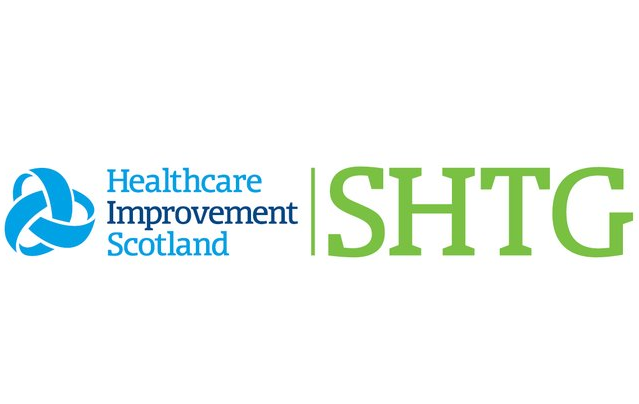Elective surgery using mesh to repair primary or incisional hernias in adults

SHTG Recommendations for NHSScotland
Surgical mesh is used in hernia repair, a common surgical procedure in both men and women. Following the impact on women of using surgical mesh for prolapse repair, it is timely and appropriate to consider the use of mesh to repair hernias. The Scottish Government asked the Scottish Health Technologies Group (SHTG) to review the evidence for using surgical mesh in the elective repair of abdominal and groin hernias in all adults.
The evidence supports the continued availability of surgical mesh as an option for elective repair of primary ventral hernias, incisional hernias, and primary inguinal hernias, in adults in Scotland.
Patient preference may be for a non-mesh (suture) hernia repair and access to alternative hernia management options should be available to accommodate this.
All elective hernia repairs should be preceded by a detailed discussion between the patient and the surgeon as part of an informed consent process. Points for discussion include:
- the benefits and risks of surgical and non-surgical approaches to hernia management, including the fact that neither mesh nor non-mesh repair are risk-free procedures
- the risk of developing chronic pain following hernia repair, especially for patients with pain as their main presenting symptom, and
- the uncertainty around long-term outcomes from hernia surgery, using mesh or non- mesh repair, given the few studies that followed up with patients beyond 1 year.
Patients should be provided with detailed information on hernia repair in a variety of accessible formats, including verbal and written.
The decision to use laparoscopic or open mesh repair should be based on the patient’s medical history, the characteristics of their hernia, and surgical expertise. The decision on which mesh fixation technique to use in elective hernia repair should be based on surgical expertise, the type and size of hernia, laparoscopic or open repair, and the type of mesh used.
It is important that data on long-term outcomes from hernia repair in Scotland are recorded at a national level to inform future decision-making. This should be aligned with the UK Medical Device Information System and include collection of patient reported outcomes.
NHSScotland is required to consider SHTG recommendations.
How the Council reached the recommendation
- In reaching their recommendation, the Council took into account the range of information and evidence that was gathered as part of the health technology assessment (HTA) process, including published literature and public and patient experiences.
- The Council discussed the importance of offering a non-mesh (suture) hernia repair option for patients across NHSScotland. The clinical experts at the Council meeting were uncertain how much surgical expertise on non-mesh repair was available in the boards, but agreed with the Council that there should be suitable access to non-mesh repairs. Equal access to non-mesh repairs may require transferring patients to a different board for treatment.
- The Council recognised that chronic pain is an important issue for patients, based on patient engagement work conducted by SHTG and the published patient experience literature.
- As part of a discussion on the safety of hernia mesh, the Council noted there may be other relevant adverse effects of mesh, such as inflammatory reactions or meshomas, which were not reported in the literature reviewed. The importance of known and unknown ‘unknowns’ should be acknowledged during discussions between patients and clinicians.
- The Council discussed with the clinical experts at the Council meeting, the risks involved in hernia mesh removal. The clinical experts informed the Council there was a risk of collateral damage to surrounding tissues, such as the bowel, when attempting to remove hernia mesh.
- The Council discussed the generalisability of the key findings from the Cumberlege First do no harm report (2020) and the My Path, My Health, My Life report (2021), both of which investigated the experiences of women who had a mesh repair for pelvic organ prolapse or urinary incontinence. Key themes that are applicable to hernia mesh include having a registry of procedures and outcomes, the importance of keeping patients informed and engaged in their treatment, and open, frank discussions between patients and clinicians as part of a shared decision making process.
- Council members highlighted the importance of clear and accessible patient information on hernia repair. The national It’s OK to Ask It's OK to Ask campaigncampaign – encouraging patients to ask questions of healthcare professionals – was deemed a valuable tool that should be promoted to patients requiring hernia repair.
- The Council highlighted potential equality considerations. These related to hernia repair and gender equality, religious or other beliefs impacted by the use of biological mesh, and equality of access to treatment.
- The Council discussed the issue of unrecorded long-term outcomes following hernia mesh repair and stressed the importance of future data capture. The Medicines and Medical Devices Act 2021 provides an opportunity to facilitate data collection as part of the UK Medical Device Information System.
- The Council acknowledged that the British Hernia Society were in the process of developing a hernia repair registry in the UK. One of the clinical experts informed the Council that this registry was part funded by industry.
Date of publication: 9 December 2021
